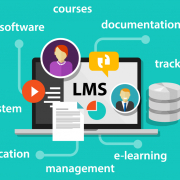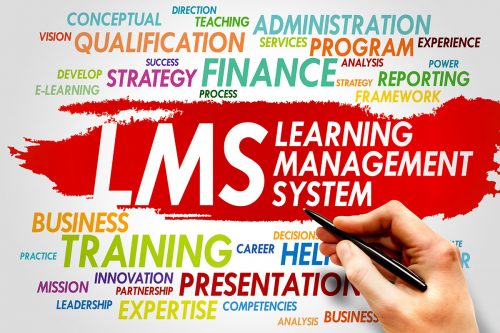The Importance of Data Security in elearning
Why You Need a Secure LMS
Data security in the corporate world is very important, and LMSs are packed full of vital information about business procedures and strategies. For the purpose of training their employees, companies upload information about company policies and structure, trade secrets, market strategies, and other crucial information. Theft or destruction of this data would most likely spell disaster for any business.
In education, a breach of the LMS would mean loss of confidential data and almost certain cheating. Such incident would make the examination in question null and void. At best, security measures would have to be revised and students would have to retake the test. At worst, cheating would undermine the legitimacy of the educational institution in question; which could have far-reaching consequences, both for students and the faculty.
A breach of the LMS could result in abuse of personal information, emotional distress, damaged reputation and loss of client confidence, regardless of the context in which it occurred. This in turn leads to loss of competitive advantage and severe financial harm. In one word, it would be a disaster. That is why security is one of the most important characteristics of any eLearning software, especially one that is open source. A lot of attention has to be paid to the security aspect of any learning management system.
However, the level of security that a software product offers can be quite difficult to evaluate. The security aspect is notoriously easy to overlook, since it is usually excluded from product overviews and feature lists. And even the most watertight system will be easy to break into if one’s password is his/her birthday. Still, there are certain features which can greatly reduce the security risks associated with eLearning.
Secure Sockets Layer (SSL)
SSL has become the standard in security technology for establishing an encrypted link between a server and a client. It allows sensitive data such as personal information and login credentials to be transmitted securely. Normally, data sent between browsers and web servers is transmitted in plain text, leaving the user vulnerable. If someone manages to intercept that data traffic, they can harvest and exploit the information which is being sent. SSL mathematically scrambles data, so that only the webpage and the end user can read it. The SSL protocol is the must-have when it comes to internet and data security and most users are already familiar with it (it is represented by the padlock icon in the search bar). YouTestMe solutions natively support SSL, preventing users’ data and passwords from being read by anyone who isn’t supposed to, and letting you operate the system safely.
Role Permissions
YouTestMe data security policies go even further, knowing how vitally important it is to protect the content and integrity of organizations which provide it. To keep the system safe, one must make sure that users can perform actions as intended. In order to access a certain feature in the system, a user must possess the appropriate privilege. User roles represent the combination of these privileges. Privileges define which actions a user can or cannot perform within the system. Admins operate the platform; teachers manage content, create tests, and receive test results and user statistics. Students can access the content and take tests, ask questions and give feedback in the comments. However, user roles are not predetermined. Privileges can be granted or revoked and freely combined. This allows for greater flexibility since admins can create custom roles to fit any particular situation and the needs of various organizations.
Passwords
Attackers know that LMS vendors take good care of the system infrastructure and process security; on the other hand, the end users are a much easier target. When someone wants to access the content on a LMS, he/she will have to login to the system. And there lies the problem, 95% of data breaches are managed by acquiring login credentials. As was already mentioned beforehand, even the most rigorous security measures would be of little help if the users set their pet’s name (which is heavily featured on all social media) as passwords. This particular problem has proven extremely hard to solve. The troubling fact is that most users simply don’t care enough about security and make surprisingly poor password choices. They don’t adhere to instructions and usually skip two-factor authentication. The research on internet security shows that the majority of users’ passwords or security questions are available on their public profiles.
It is of paramount importance to make sure that it is extremely difficult to steal login credentials. YouTestMe standards require that passwords include a minimum of eight characters, at least one uppercase, one lowercase letter, a special character and a numeral. It might sound cumbersome, but it is the only way to make sure that users are taking necessary precautions when choosing their passwords. The option to enable a captcha on signup adds one more layer to the already thorough security protocol. Captcha goes a long way in ensuring the safety of an LMS as it hinders the usage of automated tools to break into the system.
Conclusion on Data Security
Someday, we might devise a perfect security system, one which eliminates all possibility of human error. But as long as the system relies on every individual user to be responsible and guard his/her confidential information, there will be considerable risks. Nonetheless, there are certain measures which can minimize these risks. They come in many different forms and deal with both the structure of the system itself (encryption, permissions, CAPTCHA) and standards which users themselves must adhere to (password requirements). All of these are essential if one wishes to protect the crucial information in one’s eLearning system, both in corporate or purely educational context.








